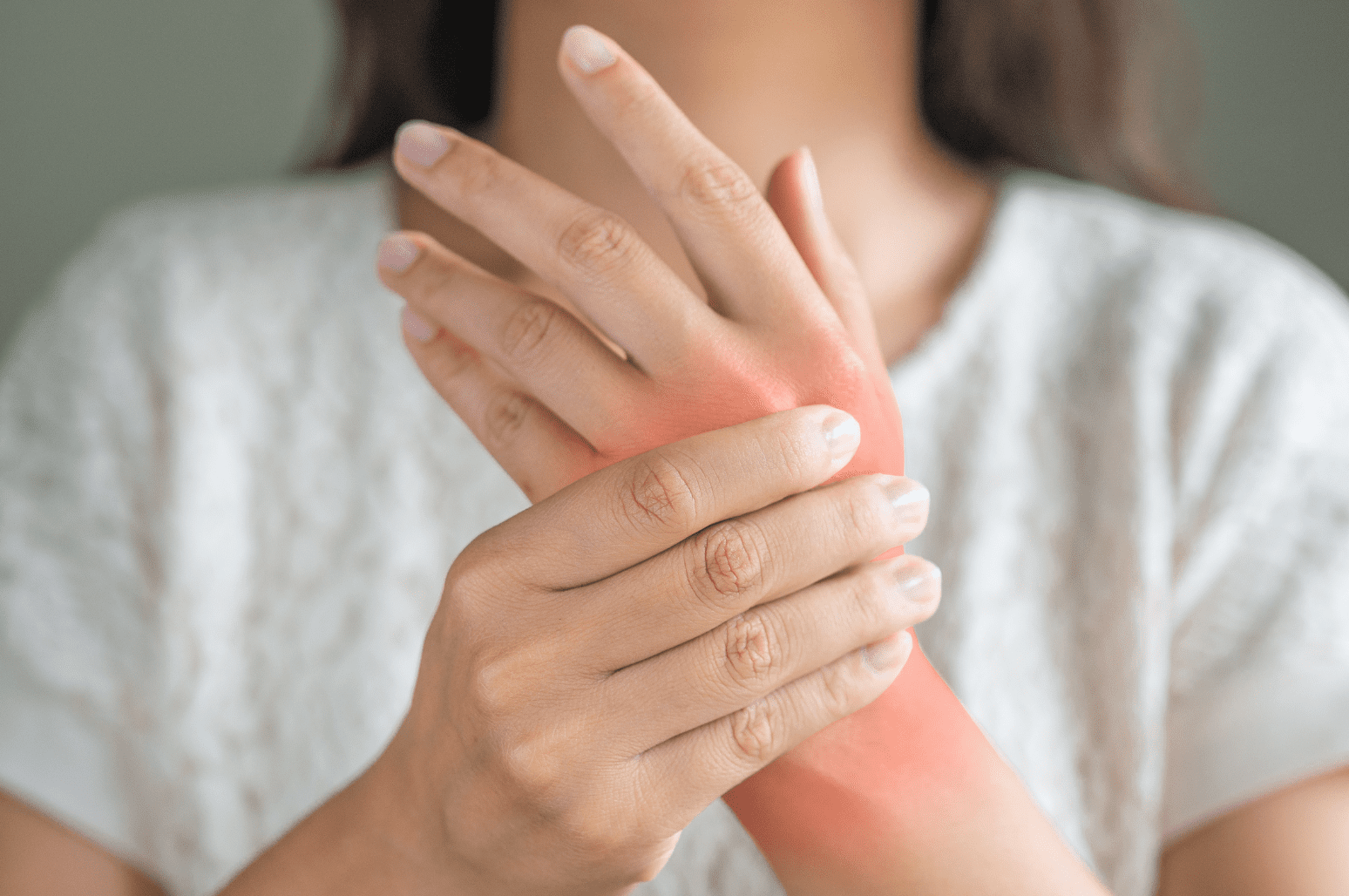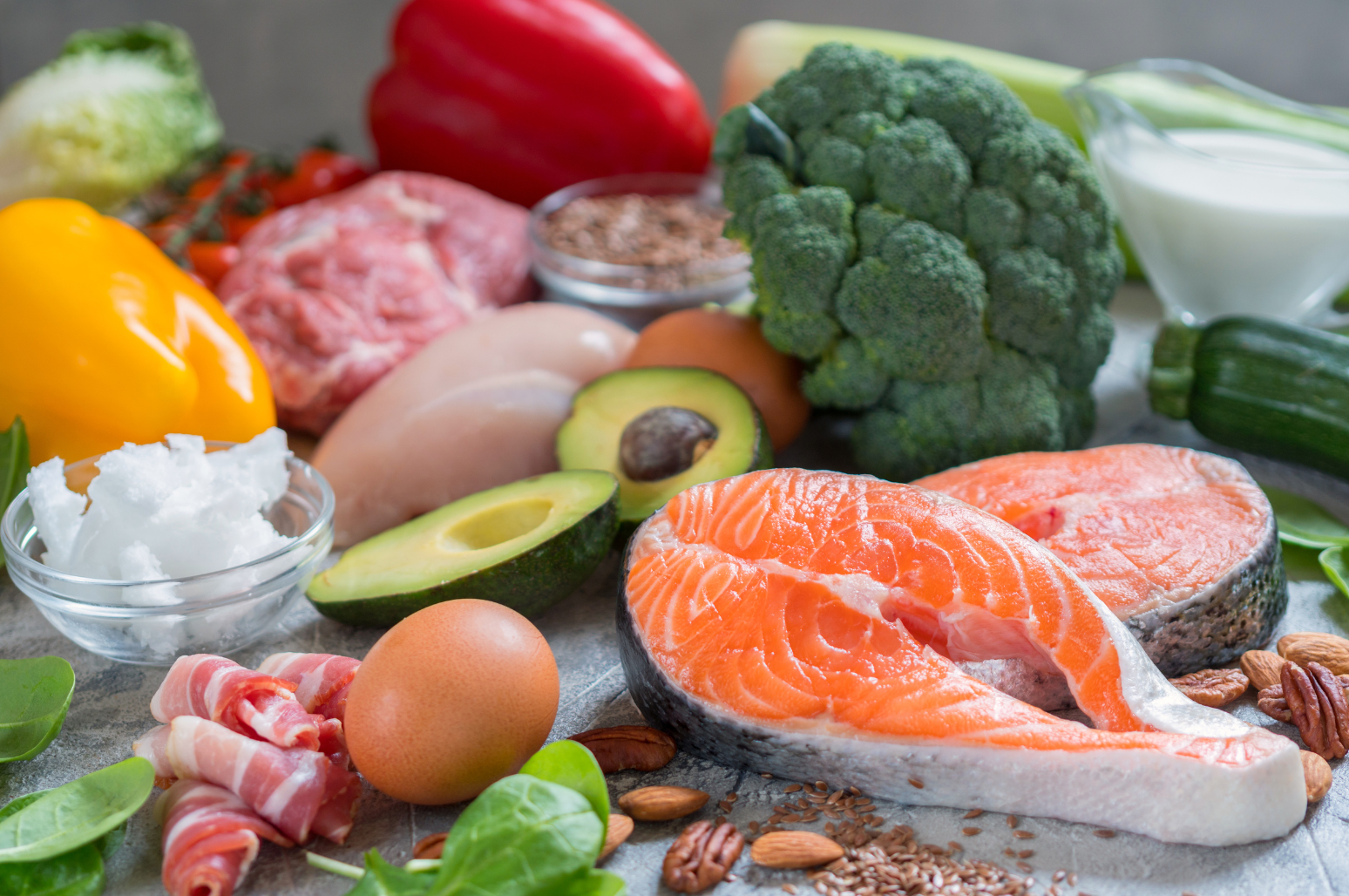
An estimated 1 in 10 people will develop eczema during their lifetime, and 31.6 million people in the United States are dealing with some form of eczema, according to the National Eczema Association. [1] Itchy skin and rashes can greatly impact quality of life, especially during childhood, and many people are looking for answers beyond topicals. So, what lifestyle changes can improve eczema? Can keto improve eczema?
What Is Eczema?
Eczema refers to an inflammatory skin disease more prevalent in children and categorized by:
- Itchiness
- Dry skin
- Scaly patches
- Rashes
- Blisters
- Skin infections
There are different types of eczema, and symptoms can range from mild to severe. The term flare-up describes a phase of eczema where the symptoms are worse. Flare-ups can last days or weeks.
Many children grow out of eczema or experience a lessening of symptoms during adolescence and adulthood. Adults can develop eczema during adulthood, even without any personal or family history of the skin condition.
Eczema shouldn’t be confused with the rare keto skin rash (prurigo pigmentosa), which might be linked to nutritional and hormonal deficiencies. Eczema isn’t contagious and doesn’t transfer from person to person. The most common form of eczema (atopic eczema) occurs due to an overactive immune system leading to a dry and itchy skin barrier.
The exact cause isn’t clear, but an interaction between environmental triggers and genetics could play a role. Emotional stress or environmental factors like soaps, laundry detergents, metals, or even extended exposure to dry air or extreme temperatures could trigger an immune reaction and inflammation on the surface of the skin. A genetic component and a protein called filaggrin that helps skin maintain moisture could also be involved. Filaggrin deficiencies often cause drier, itchier skin. [2]
People with eczema usually deal with other conditions like allergic asthma and food allergies.
What Are the Treatments for Eczema?
The typical treatments for eczema include:
- Moisturizers
- Topical skin creams
- Antihistamines
- Corticosteroids
- Immunosuppressants
- Injectable biologics
- Phototherapy (light therapy)
Many people are now choosing to treat eczema using alternative and lifestyle therapies, such as:
- Diet changes
- Meditation
- Acupuncture
- Cryotherapy
- Medical-grade honey
- Probiotics and fermented foods
With eczema, it’s helpful to implement a daily bathing and moisturizing routine and be aware of your triggers to avoid exposure. [3]
Keto and Eczema: Can a Diet Change Help?
On the grapevine and on the internet, you can find countless stories and anecdotal evidence about how going keto significantly improved eczema and other skin issues. Many people seemingly tried everything to no avail before stumbling into the ketogenic lifestyle and finding success in treating eczema.

In studies, a ketogenic diet has proven to be an effective therapeutic option for the management of varying dermatologic conditions, including psoriasis. [4] [5] Some research shows the ketogenic diet can improve eczema. [6] [7]
Again, those ketones produced when you’re in the metabolic state of ketosis could be beneficial for treating inflammatory dermatologic disease. [8] More medical literature and long-term studies on a ketogenic diet and eczema specifically are needed to reach clear conclusions.
Ways Keto May Improve Eczema
Anti-inflammatory
Eczema is an inflammatory skin disease, and a ketogenic diet is proven to decrease inflammation. Low-carb diets have also shown promise for a range of autoimmune diseases, where the body is attacking your own tissues.
Sugar and refined carbs can hike up inflammation in the body but going low-carb means leaving all that inflammatory sugar behind. Most of the opportunistic bacteria in your gut feed off sugar. Reducing sugar consumption can assist you in bringing your gut microbiome back in balance.
Fats and oils like MCTs (medium chain triglycerides) are easily and promptly converted to ketones in your body. Ketones lower inflammation and fuel your cells.
Lots of doctors and dermatologists recommend an anti-inflammatory way of eating rich in antioxidants, omega-3 fats, fatty fish, nuts, and seeds. Plenty of these foods are also keto-friendly.
Nutrients
Regardless of whether you’re following a ketogenic diet, optimal nutrition is a precursor to optimal skin health. Malnutrition and nutrient deficiencies impair skin and wound healing. For example, vitamin A is a key nutrient associated with strengthening the epithelial tissue and skin. Other nutrients like vitamin A and selenium are equally important for skin health.
Food Allergies
Just because you’re on a keto diet doesn’t mean you’re not dealing with a food allergy or sensitivity. If you’re wondering if a food allergy could be contributing to your eczema, you could try an elimination diet where you eliminate certain food groups from your diet for some time before adding the food or food groups back in one-by-one. Keep a food diary and monitor reactions to determine if the food provokes any symptoms.
Among the most prevalent food allergens are soy, wheat, gluten, dairy, and eggs. Many people have sensitivities to the nightshade family of vegetables, which include tomatoes and eggplants. You could also ask your doctor about food allergy testing. [9]
Omegas and Healthy Fats

Most keto diets include omega-3 fats from foods like fatty fish, grass-fed beef, walnuts, flax seeds, and chia seeds. Keto is a high-fat, moderate protein, and low-carb diet. Read our detailed article for more info on the different types of omega-3s and the many benefits. Essential fatty acids are necessary for maintaining cell membrane structure. The omega-3 fatty acids EPA and DHA might improve the symptoms of eczema due to their anti-inflammatory effects.
Pregnant women who supplemented with fish oil reduced the severity of atopic dermatitis (eczema) during the first year of life. [10] [11] [12] Other fats and oils have also been looked at for relieving eczema, including evening primrose oil. [13]
Microbiome
The gut microbiome refers to the trillions of bacteria, fungi, and viruses living in the gut. There’s a strong connection between gut health and skin health. When your gut’s microbiome is out of balance, your skin’s microbiome is probably out of balance too, leading to an overgrowth of opportunistic bacteria and a die-off of beneficial bacteria.
Preliminary studies show that certain probiotics in the Bifidobacteria and Lactobacillus family could potentially improve the clinical effects of eczema in children and adults. Higher microbiome diversity is associated with better health, meaning the more different types of microorganisms in your gut, the better. Fascinating research on the microbiome and how it affects overall wellness is ongoing. This is all the more reason to consume varying foods, probiotics, and fermented foods.
Metabolic Syndrome and Obesity
Skin conditions like psoriasis might be associated with increased rates of obesity and metabolic syndrome. A ketogenic diet is renowned for weight loss, boosting metabolism, and normalizing hormones and blood sugar. When hormones, metabolism, and blood sugar are out of whack, the body often shows signs that could manifest as inflammation of the skin and skin rashes.
Glycemic Load and Sugar
It’s no secret that inflammatory sugar worsens acne, and other skin problems don’t seem to be much different. Studies show diets higher in glycemic load and dairy could be associated with worsening acne. The standard Western diet is sugar-loaded, but foods higher on the glycemic index are off-limits on keto, which could be one reason why skin condition improves on keto.
How Does Eczema Respond to Diet?
In summary, several factors drastically affect your skin and immune health, such as:
- Nutrition
- Hydration
- Hormonal deficiencies
- The microbiome
- Inflammation
- Food allergies
- Obesity
- Glycemic index and blood sugar
To help manage eczema, people have integrated different types of ketogenic diets, including low-histamine, gluten-free, and dairy-free.
Some research and anecdotal evidence show a ketogenic diet could improve eczema, but more studies are necessary. Keto could be useful for this skin condition for several reasons, as it:
- Requires ditching inflammatory foods like sugar, lowering inflammation
- Improves the microbiome
- Increases your intake of healthy fats and omega-3s
- Ensures sufficient protein intake
- Increases antioxidant intake
If you’re unsure, have questions about eczema, or if you’re considering diet and lifestyle changes, it’s always best to visit your dermatologist or healthcare practitioner.
Have you dealt with eczema? How did going keto affect your eczema? Share your stories and diet tips with the community here at Ketogenic.com.
References
National Eczema Association. Eczema Stats. Eczema Prevalence, Quality of Life and Economic Impact (nationaleczema.org)
McLean, W. H. I. (2016). Filaggrin failure: From ichthyosis vulgaris to atopic eczema and beyond. British Journal of Dermatology, DOI: 10.1111/bjd.14997
National Eczema Association. What is Eczema? Eczema Causes, Triggers & Symptoms | National Eczema Association
Castaldo, G., Pagano, I., Grimaldi, M., Marino, C., Molettieri, P., Santoro, A…Rastrelli, L. (2020). Effect of a very-low-calorie ketogenic diet on psoriasis patients: A nuclear magnetic resonance-based metabolomic study. J Proteome Res, https://doi.org/10.1021/acs.jproteome.0c00646
Fomin, D. A., & Handfield, K. (2020). The ketogenic diet and dermatology: A primer on current literature. Cutis, 105(1), 40-43.
Nosrati, A., Afifi, L., Danesh, M. J., Lee, K., Yan, D., & Beroukhim, K. (2017). Dietary modifications in atopic dermatitis: Patient-reported outcomes. Journal of Dermatological Treatment, https://doi.org/10.1080/09546634.2016.1278071
Functional Medical Corporation. Ketogenic Diet: Benefits and Potential Risks. Ketogenic diet: benefits and potential risks - Functional Medical System (functionalmedsystem.com)
Fomin, D. A., McDaniel, B., & Crane, J. (2017). The promising potential role of ketones in inflammatory dermatologic disease: A new frontier in treatment research. Journal of Dermatological Treatment. https://doi.org/10.1080/09546634.2016.1276259
Sicherer, S. H., Warren, C. M., Dant, C., Gupta, R. S., & Nadeau, K. C. (2020). Food allergy from infancy through adulthood. J Allergy Clin Immunol Pract, 8(6), 1854-1864. DOI: 10.1016/j.jaip.2020.02.010
Oregon State University. Essential Fatty Acids Summary. Essential Fatty Acids | Linus Pauling Institute | Oregon State University
American Nutrition Association. Nutrition for Eczema: Atopic Dermatitis. Nutrition for Eczema: Atopic Dermatitis | American Nutrition Association (theana.org)
Balic, A., Vlasic, D., Zuzul, K., Marinovic, B., & Mokos, Z. B. (2020). Omega-3 versus omega-6 polyunsaturated fatty acids in the prevention and treatment of inflammatory skin diseases. Int J Mol Sci, DOI: 10.3390/ijms21030741
Schalin-Karrila, M., Mattila, L., Jansen, C. T., & Uotila, P. (1987). Evening primrose oil in the treatment of atopic eczema: Effect on clinical status, plasma phospholipid fatty acids and circulating blood prostaglandins. British Journal of Dermatology, https://doi.org/10.1111/j.1365-2133.1987.tb04085.x
Kucharska, A., Szmurlo, A., & Sinska, B. (2016). Significance of diet in treated and untreated acne vulgaris. Postepy Dermatol Alergol, 33(2), 81-86. DOI: 10.5114/ada.2016.59146
National Eczema Association. Ask the Ecz-perts: Keto Diet, Food Allergies, Natural Creams, Mental Health. Ask the Ecz-perts: Keto diet, food allergies, natural creams, mental health | National Eczema Association









